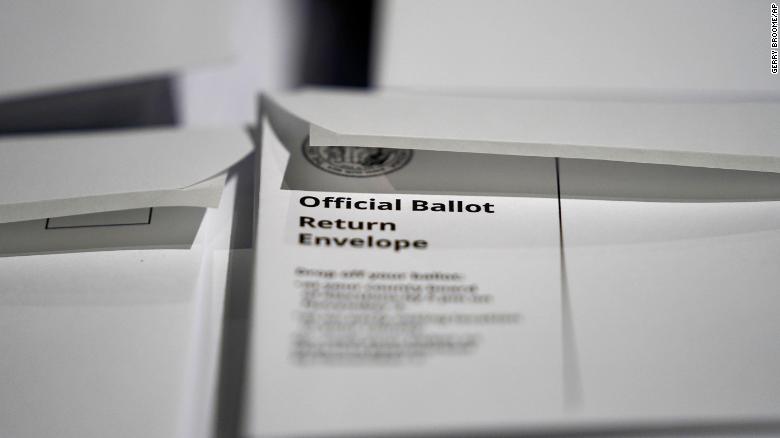The case involves
Texas’s rules on absentee voting, which permit anyone aged 65 or older—but not younger voters—to vote absentee without another excuse. Texas is one of just
six states that will not allow fears of Covid-19 to qualify as a valid excuse for absentee balloting this year. Plaintiffs challenged the Texas law as violating the
26th Amendment to the US Constitution, which provides, “The right of citizens of the United States, who are 18 years of age or older, to vote, shall not be denied or abridged by the United States or any state on account of age.”
The plaintiffs asserted that making an age distinction on who can vote absentee, especially during a pandemic, “abridges” the right to vote by diminishing the ability of younger people to cast a ballot—they simply have a harder time voting in this environment than older voters. Although younger people can still vote, meaning that there has not been an outright “denial,” the differential rules on how to vote make younger voters worse off. After all, the word “abridge” must mean something more than just “deny” given that the constitutional amendment contains both words.
Even though a federal district court
agreed with their assessment, a federal court of appeals just reversed that opinion by a 2-1 vote. The court reasoned that, because younger voters can still vote in person, Texas has not “abridged” their right to vote on the basis of age.
This decision turns plain language and reasoned logic on its head. The
court wrote that “an election law abridges a person’s right to vote for the purposes of the Twenty-Sixth Amendment only if it makes voting more difficult for that person than it was before the law was enacted or enforced.” The court required a baseline for comparison, and because voting is not “more difficult” for younger voters (it’s just easier for older voters), the Texas law does not violate the constitutional command.
The court’s analysis is lacking in several respects. First, although the court provided a definition of “abridge” as “to reduce or diminish,” it failed to recognize how letting only older people vote by mail, and not providing that same ease to the ballot to younger voters, by comparison reduces or diminishes younger individuals’ ability to vote.
Second, the court’s requirement of a baseline for an “abridgement” is nonsensical: if a state has always treated some voters better than others, that prior baseline should not immunize that scheme from constitutional scrutiny. No one would agree that a state’s practice that makes it harder for racial minorities to vote is constitutional simply because it has always been the state’s practice.
Third, the court stated that although the term “abridge” might require scrutiny of the state’s rule as a whole—without a comparison—it would not question the Texas scheme. The entirety of the court’s analysis on this point rested on just one phrase: “we see no basis to hold that Texas’s absentee voting rules as a whole are something that ought not to be.” That is a conclusory statement without any reasoning whatsoever. Had a student of mine provided this kind of cursory analysis, they would receive a very poor grade.
Judge Carl Stewart,
in dissent, had it exactly correct: “I conclude that the options granted to voters to cast their vote are part of ‘the right to vote’ under the Twenty-Sixth Amendment. By giving younger voters fewer options, especially in the context of a dangerous pandemic where in-person voting is risky to public health and safety, their voting rights are abridged in relation to older voters who do not face this burden.”
It is probably too much to ask the Supreme Court, which has been
overly restrictive on voting rights, to step in to correct the lower court’s misguided approach. The current Court has been no fan of the constitutional right to vote. But if the Court does take this case, it should more broadly interpret the word “abridge” in this context.
In the long term, we need stronger protection in the Constitution for the right to vote. Others have rightly
argued that we need a
new constitutional amendment that affirmatively grants the right to vote to all citizens. The federal appeals court here recognized that the Constitution does not affirmatively grant the
right to vote. The implications of that reality produce narrow decisions that harm voters.



